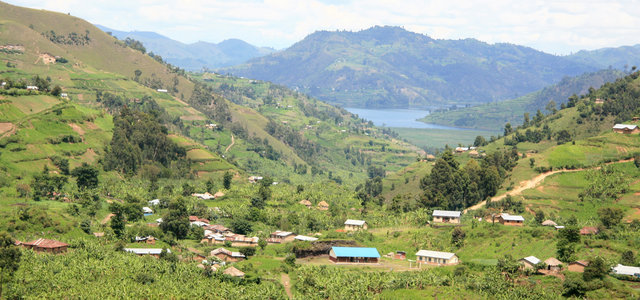The Ugandan Ministry of Water and Environment (MWE) in partnership with the Global Water Partnership (GWP) and the Green Climate Fund (GCF) from 28-29 July, 2020, convened a two-day online workshop on the development of a GCF Readiness Programme theory of change – the first workshop of its kind in Africa. The workshop drew more than 40 national experts in the water and climate change sectors and provided a platform for discussing current barriers to Uganda’s access to GCF support and how to overcome them.
Delivered entirely online, the two-day workshop used a combination of online polls and breakout sessions to gauge participant views on existing barriers or gaps as far as Uganda’s institutional capacity, governance mechanisms, as well as planning and programming frameworks as far as accessing GCF support is concerned.
The two-day online workshop set out to achieve the following objectives:
1) Recognise the GCF Readiness Programme as an opportunity to strengthen Uganda’s institutional capacities, governance mechanisms, and planning and programming frameworks for transformational long-term climate action.
2) Establish an understanding around the process and requirements for accessing GCF Readiness support.
3) Identify country-specific institutional, governance, and capability barriers to accessing GCF finance for resilience building water investments and identify potential solutions.
4) Share GWP’s process for supporting countries’ access and implementing GCF Readiness support.
5) Conceptualise early ideas for a potential GCF Readiness proposal.
The GCF is a United Nations Framework Convention on Climate Change (UNFCCC) financing instrument and the world’s largest fund solely dedicated to addressing climate change. Developing a theory of change brings countries like Uganda closer to submitting readiness proposals to GCF, which in turn, offers climate finance to enable implementation of climate resilient water projects.
Uganda is encouraged – under GCF’s Readiness Programme – to achieve one or more of these objectives: capacity building; adaptation planning; strategic framework development; pipeline development; and knowledge sharing and learning.
In his opening remarks, Mr. Alex Simalabwi, GWP’s global lead on climate change and head of GWP’s Africa Coordination Unit, emphasised that GWP – as an accredited GCF Readiness Delivery Partner – is committed to supporting countries to mobilise climate financing worth €1 billion by 2025. In addition, GWP is committed to ensuring that 30 countries receive support with project preparation, blending climate finance with private sector finance. These two goals are part of GWP’s strategy targets on climate resilience as outlined in its global strategy for 2020-2025.
The Acting Commissioner of the Climate Change Department at the MWE, Mr. Bob Natifu, mentioned that the ministry was accredited as Uganda’s NDA in July 2019 and prior to that, accredited to the Adaptation Fund in April 2019. In providing details on the Ugandan context, the NDA representative mentioned that the country is a climate-sensitive economy and as such, a key challenge that is faced is on how to balance between developing environmental safeguards at the ministry to encompass other pressing national issues whilst matching GCF requirements.
In delivering Uganda’s current status of GCF Readiness, he highlighted that to date, Uganda has received $700,593 during the first phase of the country readiness cap, which entitles each country to $1 million per year. He added that the country is in the process of accessing additional GCF Readiness funds and has developed a three-year plan under phase 2 which will be effective in 2021. preparations to access more GCF readiness funds and has developed a three-year plan under the readiness phase 2 effective 2021.
He also highlighted that Uganda has implemented a tripartite approach to climate change as seen by input and participation from the MWE, the National Planning Authority, and the Ministry of Finance, Planning, and Economic Development.
Key Points Arising from the Workshop
- Shared recognition that the biggest challenge Uganda faces is inadequate resources (both financial and human) to effectively implement policy aspirations into tangible outputs, resulting in transformational long-term climate action.
- The GCF Readiness Program is an opportunity for Uganda to bridge several funding gaps.
- Uganda has made some significant strides in GCF Readiness but inadequate knowledge learning and sharing platforms leaves many stakeholders unaware of this progress and what input they can contribute to the NDA to further the country’s progress.
- Strengthening Uganda’s institutional capacity and knowledge sharing platforms will be a positive step forward in enhancing the country’s readiness for climate financing.
- The two-day workshop helped provide a learning and networking opportunity to a variety of stakeholders, however participants agreed that further engagements and guidance from GWP are integral not only for multi-stakeholder cohesion but also for enhancing Uganda’s readiness for climate financing.
Photo credit: Mostphotos.com
